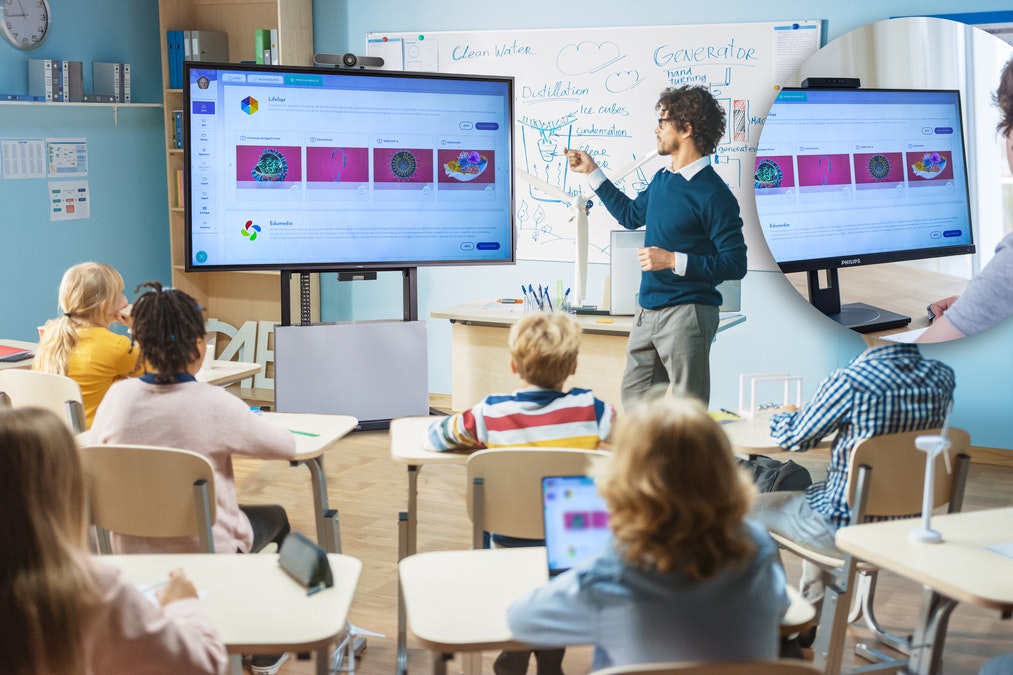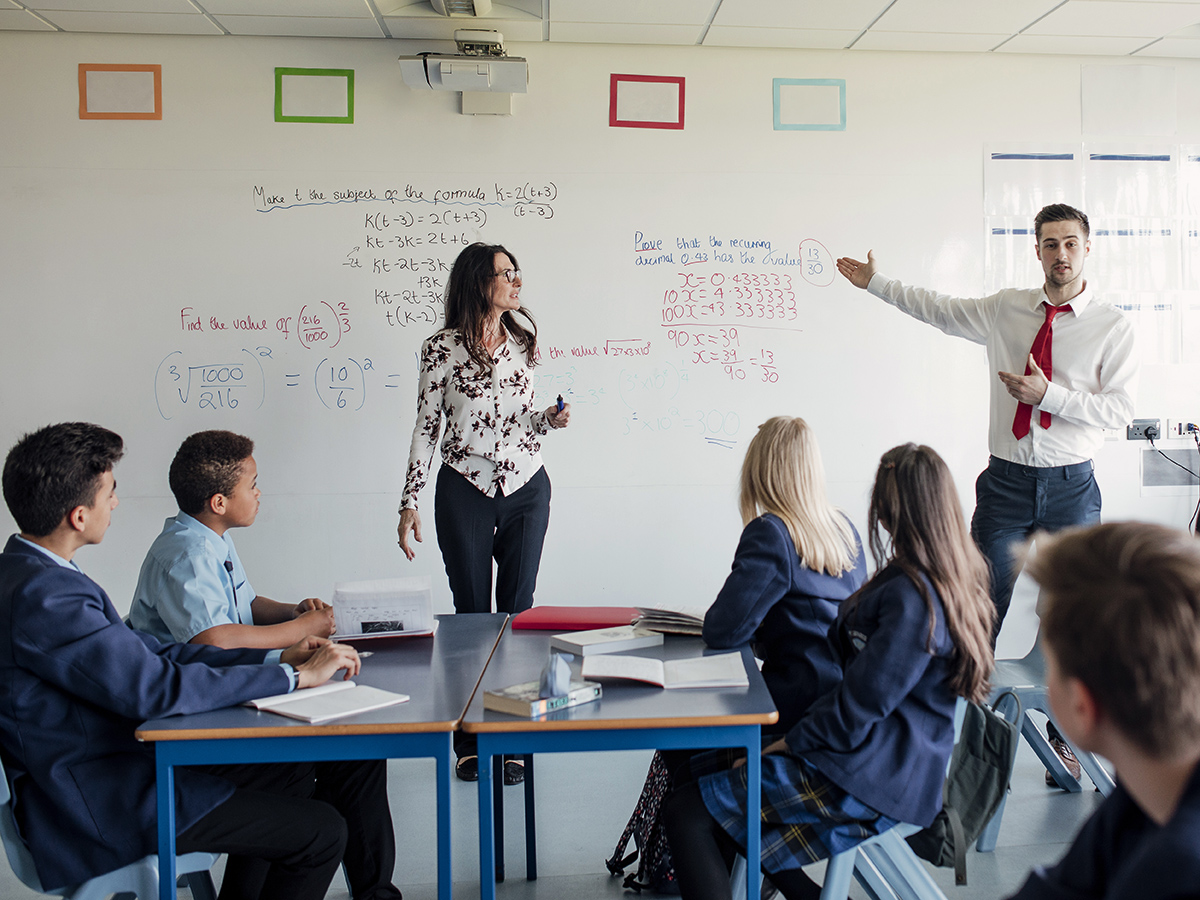The Best Primary Science Tuition Singapore for Effective Learning Methods
The Best Primary Science Tuition Singapore for Effective Learning Methods
Blog Article
Checking Out the Different Training Methods in Main Science Education Today
The landscape of key scientific research education is advancing, with numerous mentor strategies getting importance in contemporary class. Inquiry-based learning, hands-on experiments, and the assimilation of technology are redefining exactly how instructors involve young minds. In addition, collaborative methods and distinguished guideline are being employed to accommodate the varied demands of pupils, enhancing both engagement and understanding. As we check out these techniques, inquiries develop regarding their performance and the implications for future instructional techniques. What might these changes in approach mean for the next generation of learners?
Inquiry-Based Understanding
Inquiry-Based Understanding (IBL) is a pedagogical strategy that encourages pupils to explore scientific concepts through questioning, examination, and hands-on trial and error. This approach stresses the duty of students as energetic individuals in their learning, advertising vital reasoning and analytic abilities. By engaging with real-world questions, trainees end up being curious and determined, which boosts their understanding of scientific principles.
In IBL, instructors function as facilitators, assisting trainees as they browse their queries instead of providing info straight. This student-centered method permits for distinction, fitting numerous finding out designs and rates. Students create abilities in formulating theories, developing experiments, and assessing information, which are vital for scientific literacy.
In addition, IBL fosters partnership amongst students, motivating them to share ideas and findings. This cumulative inquiry advertises social skills and a sense of area within the class. The process of inquiry encourages strength, as trainees find out to welcome failure as a stepping stone toward understanding.
Hands-On Experiments
Hands-on experiments are a vital part of effective scientific research education and learning, enhancing the principles of inquiry-based knowing. These experiments allow trainees to involve straight with scientific principles, cultivating a much deeper understanding with experiential discovering. By adjusting materials and observing results, young students can realize abstract concepts in substantial ways.
Such tasks advertise vital reasoning and problem-solving abilities, as students assume results, conduct experiments, and examine results. This process urges them to ask questions, improve their understanding, and create a clinical mindset. Hands-on experiments can be customized to diverse learning designs, making sure that all pupils have the chance to involve meaningfully with the content.
Additionally, hands-on experiments usually urge cooperation amongst peers, promoting teamwork and interaction skills. Operating in teams allows trainees to share ideas, go over findings, and pick up from one an additional, which improves their general educational experience.
Incorporating hands-on experiments right into the main science educational program not just enhances the discovering environment however additionally grows a long-lasting rate of interest in science. By actively getting involved in their education and learning, pupils are more probable to develop an interest for clinical inquiry that expands beyond the classroom.

Technology Combination
Integrating innovation into main science education and learning has actually become significantly vital in cultivating pupil engagement and improving finding out outcomes. Using digital devices, such as interactive simulations, digital labs, and educational software application, gives trainees with possibilities to discover scientific ideas in innovative methods. These resources help with a much deeper understanding of complex topics by enabling learners to imagine and control variables that would be unwise in a traditional classroom setup.
Additionally, modern technology combination encourages individualized learning experiences. Students can proceed at their own pace, revisiting challenging ideas through multimedia resources, which deal with different knowing styles. This versatility not just sustains private growth yet likewise cultivates a feeling of freedom in learners.
Additionally, modern technology offers as a bridge to real-world science, linking students with present research and professional payments. Access to on the internet data sources and clinical journals expands pupils' viewpoints on scientific query and cultivates important assuming abilities.
Collaborative Knowing
Collective learning plays a crucial function in key scientific research education and learning by promoting Get More Information synergy and interaction abilities amongst pupils. This approach encourages students to collaborate, share expertise, and involve in problem-solving, which enhances their understanding of scientific principles. By getting involved in group activities, pupils discover to express their ideas, pay attention to diverse viewpoints, and discuss remedies, every one of which are important skills in both real-world and academic contexts.

Research indicates that collaborative understanding can result in raised motivation and involvement in scientific research subjects, as trainees find pleasure in common experiences (primary science tuition Singapore). Furthermore, this approach prepares pupils for future collective endeavors, outfitting them with the abilities needed for effective teamwork in college and professional settings. Inevitably, welcoming collective understanding in key scientific research education and learning can substantially enhance the understanding experience and promote a deeper understanding of clinical inquiry
Set Apart Guideline

Separated guideline can manifest in numerous means, such as varying the web content, procedures, or products of learning. As an example, educators might use tiered jobs that offer varying levels of intricacy, enabling students to operate at their respective readiness levels. Furthermore, adaptable grouping techniques can help with partnership among trainees with different capabilities, promoting peer knowing.
Analysis plays a crucial role in this technique, as it educates direction and helps teachers understand each pupil's distinct requirements. Formative assessments, such as monitorings and my site quizzes, can lead teachers in adjusting their strategies to improve learning results. primary science tuition Singapore. Inevitably, by carrying out set apart direction in key science education and learning, educators can cultivate a much more equitable and reliable discovering atmosphere, encouraging all students to reach their full capacity in recognizing clinical sensations
Conclusion
In summary, the diverse training approaches in primary science education and learning, consisting of inquiry-based learning, hands-on experiments, innovation integration, joint learning, and distinguished direction, jointly add to a much more reliable learning environment. These methods promote crucial reasoning, analytic abilities, and a much deeper understanding of clinical concepts. By executing these methods, teachers can produce appealing and helpful class that attend to the diverse requirements of pupils, ultimately fostering a lifelong rate of interest in scientific research and enhancing academic accomplishment.
Inquiry-Based Knowing (IBL) is a pedagogical approach that urges students to explore clinical ideas via questioning, examination, and hands-on testing.Collaborative knowing plays a vital duty in key scientific research education and learning by fostering team effort and interaction skills amongst trainees.Research suggests that collective knowing can lead to raised motivation and interaction in science subjects, as pupils locate pleasure in shared experiences.In promoting an inclusive learning environment, separated direction arises as a crucial approach to fit the diverse demands and abilities of students in key scientific research education. Eventually, by applying differentiated guideline in key scientific research education and learning, teachers can cultivate a more fair and reliable learning setting, encouraging all pupils to reach their full potential in understanding clinical phenomena.
Report this page